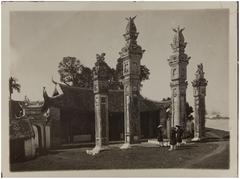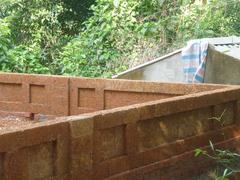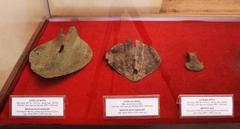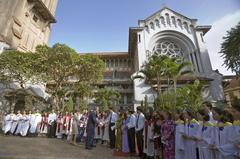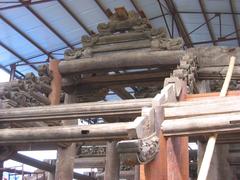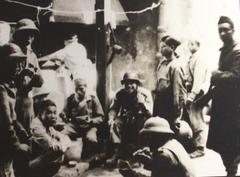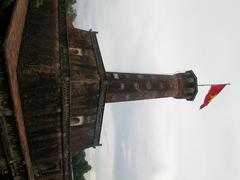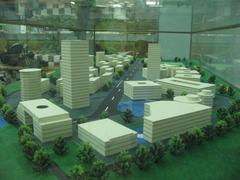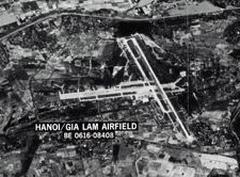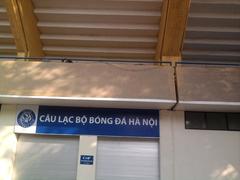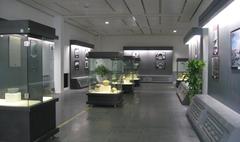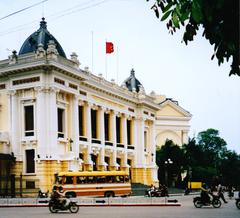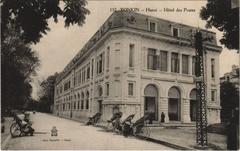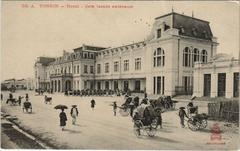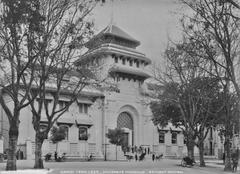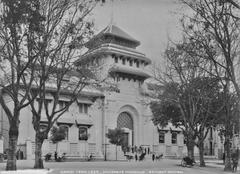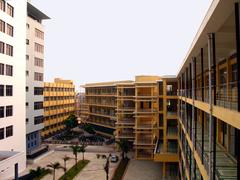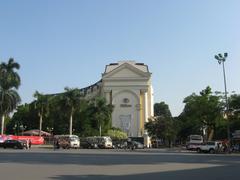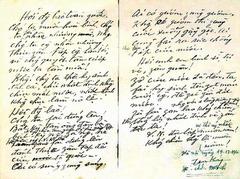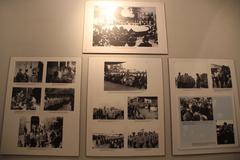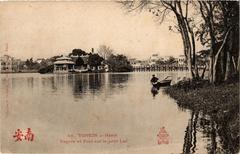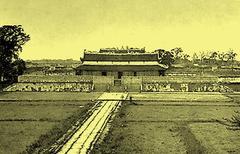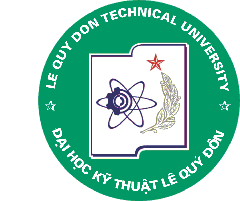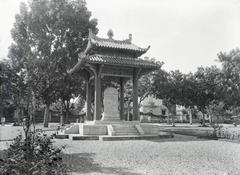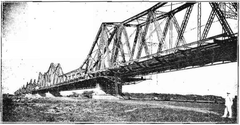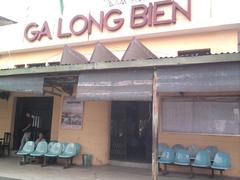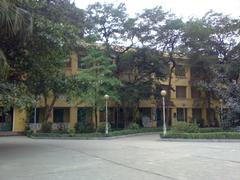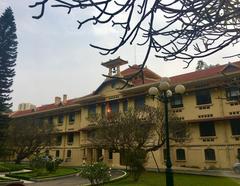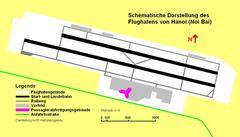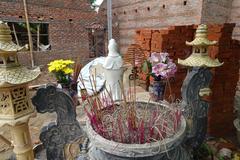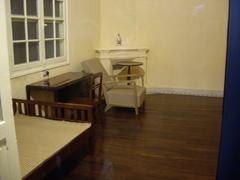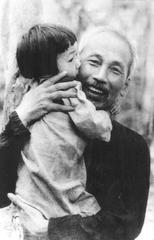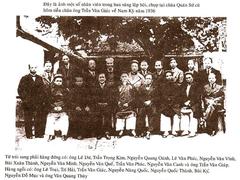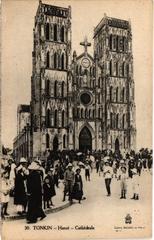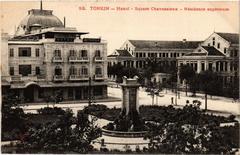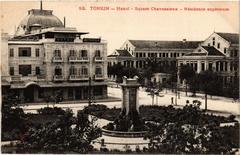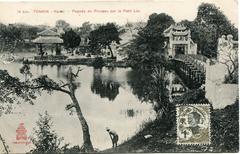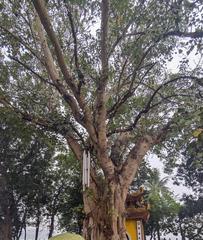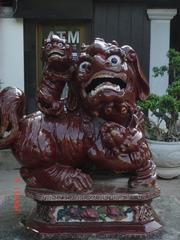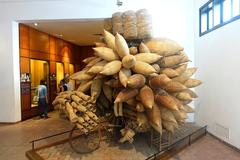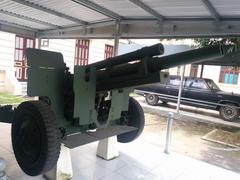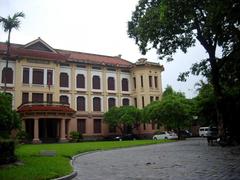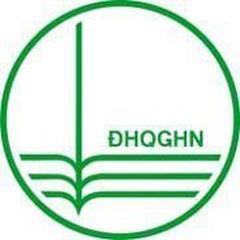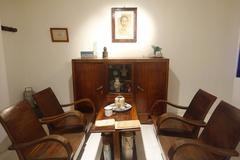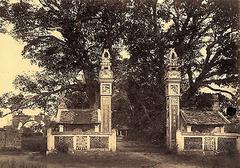Bach Mai Hospital Visiting Hours, Visitor Guide, and Hanoi Historical Sites
Date: 15/06/2025
Introduction
Bach Mai Hospital, located in the heart of Hanoi, is one of Vietnam’s most significant and historic healthcare institutions. Established in 1911 during the French colonial era, it has grown from a pioneering hospital into the largest and most prestigious medical facility in Vietnam, serving millions of patients each year. Its endurance through wartime destruction, especially the 1972 “Christmas Bombing,” and its ongoing contributions to medical innovation and education, make it a landmark not only in Vietnamese medicine but in the cultural and historical landscape of Hanoi (PMC6473014). This guide offers detailed insights into Bach Mai Hospital’s history, visiting hours, patient services, nearby attractions, and practical tips for visitors and medical tourists.
Table of Contents
- Introduction
- History and Development
- Role in the National Healthcare System
- Wartime Significance
- Visiting Bach Mai Hospital: Practical Information
- Education and Research
- Facilities and Services
- Memorial Spaces & Cultural Significance
- Medical Tourism & International Patient Services
- Travel Tips & Nearby Attractions
- Frequently Asked Questions (FAQs)
- Conclusion
- Sources and Further Reading
History and Development
Founded in 1911, Bach Mai Hospital began as a colonial-era institution providing modern medical care to northern Vietnam (PMC6473014). Over the decades, it has evolved into a multi-specialty hospital, pioneering advanced diagnostics and therapies such as nuclear medicine, oncology, and radiology. Its close affiliation with Hanoi Medical University has enabled it to serve as a leading center for medical education and research (Vietnam Teaching Jobs).
Role in the National Healthcare System
Referral and Teaching Functions
Bach Mai Hospital operates as a central-level referral hospital, managing complex cases from across northern Vietnam. It is a primary teaching site for Hanoi Medical University, training generations of doctors, nurses, and specialists. The hospital supports provincial hospitals through training and telemedicine, helping to improve healthcare quality and reduce disparities (PMC6473014; PMC8214185).
Pioneering Medical Specialties
The hospital established Vietnam’s first medical radiology research group in 1970 and has since led innovations in nuclear medicine, PET/CT, SPECT, and plans for PET/MRI technology (PMC6473014). Its specialized centers offer advanced care in cardiology, oncology, mental health, and more.
Wartime Significance
Bach Mai Hospital is etched in Vietnam’s history for its resilience during the Vietnam War. The hospital was heavily bombed during the 1972 U.S. “Christmas Bombing,” resulting in significant loss and damage. Yet, it quickly resumed operations, symbolizing the determination and spirit of the Vietnamese people (QDND). Today, a memorial monument on the hospital grounds honors staff lost during the conflict.
Visiting Bach Mai Hospital: Practical Information
Visiting Hours & Admission
- General Visiting Hours: Typically from 8:00 AM to 8:00 PM daily. In some departments, visiting hours may be from 6:00 AM to 8:00 PM or 7:00 AM to 5:00 PM, depending on patient needs and hospital policy.
- Admission & Tickets: There is no entrance fee or ticket required for visitors. Access is primarily for patients and their families, but public areas and memorial sites are open to the respectful public (ISTEPVN).
- Guided Tours: Not regularly available; educational tours must be arranged in advance with hospital administration.
Accessibility & Location
Bach Mai Hospital is situated at 78 Giai Phong Road, Dong Da District, Hanoi, and is easily accessible by taxi, bus, or motorbike. The campus features ramps, elevators, and accessible restrooms for visitors with mobility challenges (Mapcarta).
Tours & Special Events
The hospital occasionally hosts public health events and medical exhibitions. Information on such programs is available on the hospital’s website or from the administration.
Education and Research
Bach Mai Hospital is a major training site for medical students and specialists, offering clinical rotations and advanced research opportunities, especially in nuclear medicine and oncology. It collaborates with international partners from Japan, France, and other countries to stay at the forefront of medical innovation (NCGM Annual Report).
Facilities and Services
Campus Layout & Accessibility
The hospital campus includes multiple interconnected buildings, specialized centers, and green spaces. Bilingual signage and multilingual staff (especially in international departments) facilitate navigation for both local and foreign visitors (Local Vietnam).
Clinical Departments & Specialized Centers
- Affiliated Hospitals: Cardiovascular, Mental Health, and Medical Evaluation Hospitals
- Specialized Centers: Nuclear Medicine and Oncology, Rehabilitation, Clinical Nutrition, Allergy and Immunology, and more
- Clinical Departments: General and specialized medicine, surgery, pediatrics, obstetrics, nephrology, neurology, infectious diseases, and others
- Para-Clinical Departments: Biochemistry, microbiology, radiology/imaging, and functional diagnostics
(ISTEPVN)
Patient and Visitor Services
- Reception: Multilingual assistance and information desks at main entrances
- Waiting Areas: Comfortable seating, water dispensers, Wi-Fi, and restrooms
- Cafeterias & Shops: On-site cafeterias and convenience stores
- Inpatient Rooms: Range from shared wards to private rooms, with family stays permitted under hospital policy
- Admission Procedures: Patients typically need a referral or appointment; walk-ins may be accommodated at outpatient clinics
Safety and Hygiene
Bach Mai Hospital upholds high standards of cleanliness and infection control. During public health emergencies, such as Covid-19, visitor access may be restricted. Security staff ensure safety, and emergency evacuation plans are in place (PMC8214185).
Memorial Spaces & Cultural Significance
On the hospital campus, a memorial monument honors staff who perished during the 1972 bombing. The site is open to visitors for reflection; photography is allowed with staff permission (QDND). Visitors are encouraged to dress modestly and act respectfully, especially in memorial spaces.
Medical Tourism & International Patient Services
Bach Mai Hospital is increasingly recognized as a destination for medical tourism, offering advanced care at a fraction of the cost in Western countries (Medical Tourism; Vietnam Travel). Services for international patients include:
- Specialist consultations
- Surgery (including minimally invasive procedures)
- Advanced diagnostics (MRI, CT, PET)
- Rehabilitation and physiotherapy
- Interpreter services (English, French, Japanese on request)
- Assistance with appointments and insurance paperwork
International patients should arrange appointments in advance and may wish to bring a Vietnamese-speaking companion or request interpreter services (MyMediTravel).
Travel Tips & Nearby Attractions
- Transportation: Use taxis, ride-hailing apps, or public transport; parking is available but busy at peak times.
- Documents: Bring identification, medical records, and insurance papers.
- Language: English is spoken in key departments; translation apps or interpreters can help.
- Cultural Sensitivity: Respect hospital protocols and staff instructions.
- Nearby Attractions:
- Imperial Citadel of Thang Long: UNESCO World Heritage Site
- Hoa Lo Prison Museum: Colonial and war history
- Hoan Kiem Lake & Old Quarter: Iconic Hanoi sites
- Vietnam National Museum of History
- Thong Nhat Park: Urban green space
- Vietnam People’s Air Force Museum
(Hanoi Tourism Official Site; Mapcarta; Local Vietnam)
Frequently Asked Questions (FAQs)
Q: What are Bach Mai Hospital’s visiting hours?
A: Typically from 8:00 AM to 8:00 PM, but check with specific departments as policies can vary.
Q: Is there an entrance fee or ticket?
A: No, the hospital is free to enter. Appointments are required for medical services.
Q: Are tours available?
A: Not routinely; arrange in advance for educational purposes.
Q: Is the hospital accessible for people with disabilities?
A: Yes, with ramps, elevators, and accessible restrooms.
Q: Can visitors take photos?
A: Not in clinical areas. Memorial photos require permission.
Q: How can I reach the hospital?
A: By taxi, bus, or motorbike; see Mapcarta for directions.
Q: What language support is available?
A: English in most departments, with interpreter services available upon request.
Conclusion
Bach Mai Hospital stands as a pillar of medical excellence and historical resilience in Vietnam. Whether you are seeking advanced healthcare, researching the nation’s medical history, or simply exploring Hanoi’s landmarks, understanding Bach Mai’s facilities, visitor protocols, and cultural significance will enhance your experience. For up-to-date information, check the hospital’s website, use travel resources like the Audiala app, and be sure to explore the rich historical sites nearby for a comprehensive Hanoi visit.
Sources and Further Reading
- Bach Mai Hospital: History, Visiting Information, and Significance in Hanoi’s Healthcare System, 2025, (PMC6473014)
- Bach Mai Hospital Hanoi: Visiting Hours, Facilities, and Patient Guide, 2025, (ISTEPVN)
- Bach Mai Hospital Hanoi: Visiting Hours, Medical Tourism Services, and Cultural Insights, 2025, (MyMediTravel)
- Hanoi Tourism Official Site
- Mapcarta
- Local Vietnam Travel Guide
- Vietnam Travel Medical Tourism
- NCGM Annual Report
- QDND
- PMC8214185
All information is current as of June 15, 2025. For the latest updates, visit the official hospital website or contact hospital administration.


